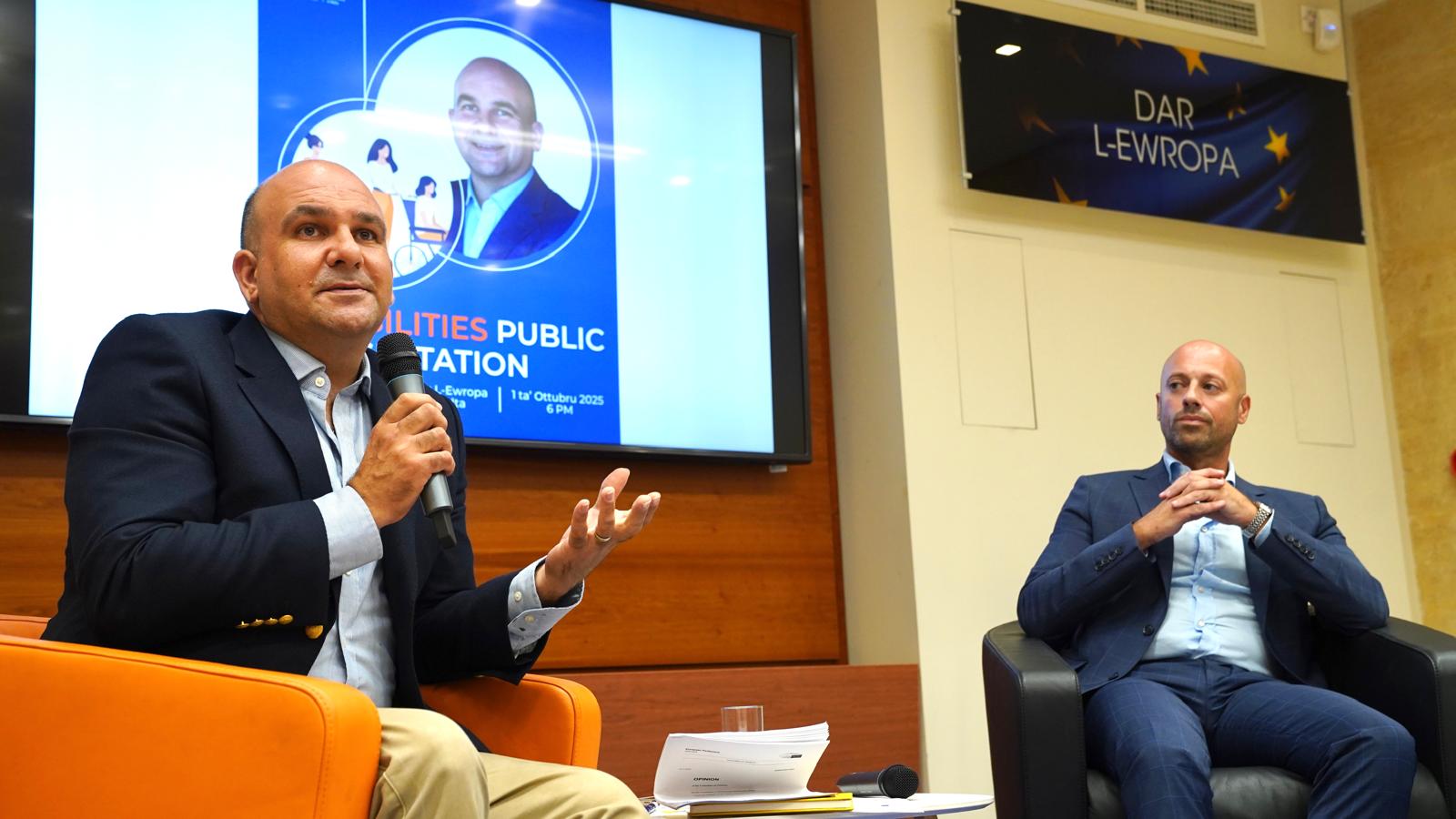By Cde,Dr Mario Sammut
Copyright cde

Reading Time: 3 minutes
MEP Peter Agius has pledged to amplify the voices of persons with disabilities in the European Parliament as the EU updates its strategy on disability rights, highlighting their societal contribution. He made the commitment during a public consultation held yesterday at Europe House in Valletta, where stakeholders raised concerns on accessibility, employment, education and cultural participation.
“Persons with disabilities have an important contribution to give to our society. We need to adapt our methods to enable those contributions,” Agius said, stressing the need to “factor in the dimension of persons living with disability in all our policy areas.”
He added: “Today I have listened to those on the frontline of our mission to improve accessibility, to fight the stigma of disabilities and to secure real rights reaching everyone, especially the most vulnerable in our society. I will put forward these voices in the European Parliament.”
The discussion, organised by the European Parliament Liaison Office in Malta and moderated by Dr Mario Sammut, brought together civil society groups, entrepreneurs, former MP Kevin Cutajar, and individuals with lived experience of disability. Topics ranged from discrimination and hidden disabilities to transport, employment and cultural accessibility.
Employment challenges were a recurring theme during this debate. CORE platform president Helga Ellul and executive Julian Dingli emphasised that many people with disabilities fear entering the workforce due to lack of training and support, while employers often do not know how to begin. They recommended incentivising training for management and introducing job coaches to support employees with disabilities. Participants also called for interview boards to receive proper training, warning that people are often judged unfairly, sidelined into jobs with lower responsibility, and blocked from career progression.
Concerns were raised about gaps in the education system, with individuals with intellectual disabilities leaving school without the skills needed for work, and about a potential shift towards segregation. The Dementia Association of Malta noted that the lack of digitalisation of records undermines continuity of care, while mental health issues were described as “the main issue for younger generations,” according to Agius.
Accessibility in transport was also a pressing issue. Cutajar urged government and EU action to ensure buses are fitted with reliable audio announcements and called for a full digital mapping of Malta to assist blind people. Others highlighted the higher cost of wheelchair-accessible taxis compared with regular services, despite operators benefitting from accessibility funding. Calls were also made for more support with mobility equipment, streamlined insurance services, and reduced red tape.
Cultural participation was also discussed, with asurvey presented by a St John’s Cathedral employee finding that many Maltese museums remain inaccessible, both physically and online. Solutions such as tactile exhibits, Braille content and tailored audio guides were suggested to open up experiences to blind visitors.
Agius acknowledged progress made in Malta but underlined the need for further action. In conclusion, he pledged to integrate the feedback gathered into the EU’s updated strategy, pointing to opportunities in the EU’s Social Climate Fund and the upcoming long-term budget that will dedicate billions to AI and the digital revolution. “Accessibility means having a path in front of one for the means to succeed,” he said.



